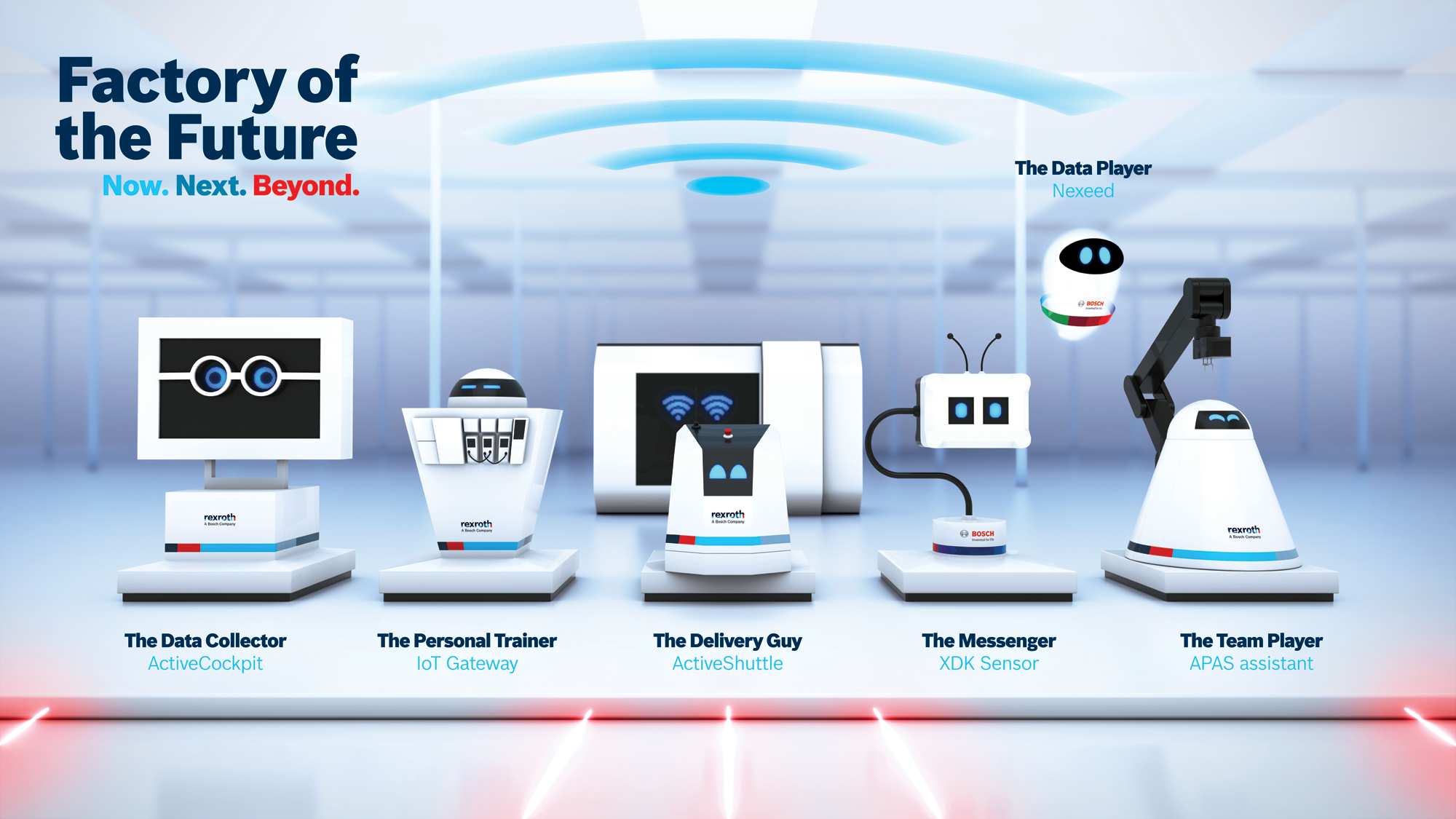
Whose Factory of the Future is it anyway?
By Food in Canada staff
Facilities Maintenance Bosch Rexroth
With Industry 4.0 revolutionizing the world of manufacturing, it is essential for facilities (large and small) to keep up to seep if they want to remain competitive.
Increase cost pressures, heightened quality standards and shorter lead times are just a handful of expectations now placed on the industry. That makes efficient working practices more important than ever before.
As a result, the Factory of the Future is what everybody is speculating. How can factories evolve to accommodate the varying demands placed on them? How can existing legacy equipment be brought into the realm of the smart factory? How can small manufacturers keep up without undergoing a complete digital overhaul?
Achieving competitive advantage through flexibility
Think about your existing factory and the only fixed elements are the walls, floors and ceilings. Everything else is mobile, with modular assembly lines and machines that freely adapt to new purposes. That variability delivers a competitive advantage for manufacturers, and tangible benefits for their customers.
For manufacturers that are operating in a more competitive global marketplace than ever before, enhancing levels of quality and elevating affordability by decreasing overheads is even more crucial. The good news is that the Factory of the Future makes all of this possible.
A future for small manufacturers
For smaller manufacturers in particular, finding the right solution to their needs is critical. Their concerns are more immediate than those of larger manufacturers, and generating efficiencies or lowering overheads could be the difference between success and stagnation in a fast-paced, digital environment.
The key is to remain agile, creating smart factory that allows production lines to be easily reconfigured so that facilities can adapt to fast-changing requirements.
That is where small manufacturers have a significant advantage. With less infrastructure, shorter chains of command and fewer layers to production methodologies, changes can be adopted easily. Once in place, manufacturers have the ability to be more agile than ever before.
Keeping an eye on ROI
Before you make any changes, making sure they deliver the impact you need is crucial. With configurator technology from Bosch Rexroth, manufacturers can create a virtual replica of their entire facility (essentially a testbed for any new solutions). From there, processes can be mimicked so that any new products can be assessed before being implemented, equipping manufacturers with detailed insights into how their facility could be improved.
Once implemented in the Factory of the Future, all hardware modules and functions can be represented digitally in real-time. Sophisticated software can collect, transfer and process data to continuously improve processes and facilitate machine learning. Wireless technology has the potential to mobilize machines and plants, with inductive charging and 5G connectivity making for faster and more stable means of data transfer.
In practice, that means simplified conversions to new processes for maximum flexibility. Production configures itself independently in-line with the product to be manufactured, communication between machines and systems is wireless and production layouts are optimized for greater efficiency. Coupled with real-time data capture and analysis, continuous improvement becomes reality.
With all that flexibility, the Factory of the Future is an entirely adaptable place, perfectly positioning manufacturers to create products of enormous variety while maintaining constantly high standards of quality.
That combination makes every manufacturer unique, delivering an undeniable edge when competing on the world stage – something made possible by the digitalization of the industry.
Discover more about the Factory of the Future HERE.
About Bosch Rexroth
As one of the world’s leading suppliers of drive and control technologies, Bosch Rexroth ensures efficient, powerful and safe movement in machines and systems of any size. The company bundles global application experience in the market segments of mobile applications, machinery applications and engineering, and factory automation. With its intelligent components, customized system solutions and services, Bosch Rexroth is creating the necessary environment for fully connected applications. Bosch Rexroth offers its customers hydraulics, electric drive and control technology, gear technology and linear motion and assembly technology, including software and interfaces to the Internet of Things. With locations in over 80 countries, more than 30,500 associates generated sales revenue of €5.5 billion (CDN $8.3 billion) in 2017. To learn more, visit www.boschrexroth.ca.
Print this page